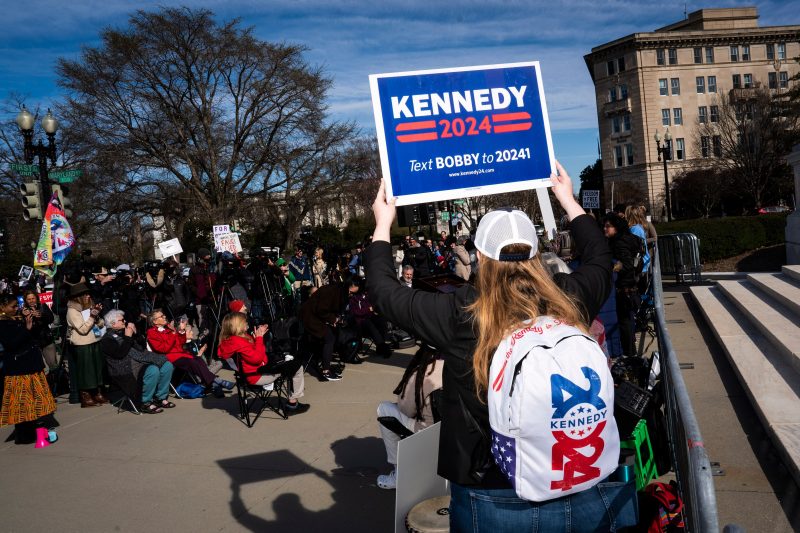In a political landscape that is often characterized by division and polarization, a surprising convergence has emerged amongst a group of voters who span the spectrum from left to right: their shared dissatisfaction with the current leadership of both President Joe Biden and former President Donald Trump. This group, often referred to as RFK Jr. voters, encompasses individuals who may hold a wide range of political beliefs and affiliations but are united in their skepticism towards the policies and actions of the two major parties.
One of the defining features of RFK Jr. voters is their focus on issues rather than party loyalty. While traditional politics often revolve around allegiance to a particular party or ideology, these voters prioritize principles and policies over partisan labels. This independence allows them to critically evaluate the actions of politicians on both sides of the aisle and hold them accountable based on their performance rather than their party affiliation.
Despite their varied backgrounds and beliefs, RFK Jr. voters are bound by a shared sense of disillusionment with the current state of American politics. Many of them feel marginalized by a system that often prioritizes the interests of powerful elites over those of ordinary citizens. For these voters, the failures of both the Biden and Trump administrations to address key issues such as healthcare, income inequality, and climate change have further eroded their confidence in the political establishment.
In addition to their dissatisfaction with the status quo, RFK Jr. voters are also united by a desire for meaningful change and a more responsive government. They are often drawn to candidates who prioritize transparency, accountability, and a commitment to the common good. While their specific policy preferences may differ, these voters share a belief in the importance of civic engagement and the need for bold, transformative leadership.
The emergence of RFK Jr. voters as a distinct political force highlights the shifting dynamics of American democracy. In an era marked by deepening divisions and growing disillusionment with traditional institutions, these voters offer a potential pathway towards a more inclusive and responsive political system. By challenging the dominance of partisan politics and advocating for a more issue-focused approach to governance, RFK Jr. voters are pushing for a new vision of American democracy that is rooted in principles of justice, equality, and accountability.
As the political landscape continues to evolve, the influence of RFK Jr. voters is likely to grow, shaping the contours of future elections and policy debates. By bridging ideological divides and emphasizing the importance of principled leadership, these voters are challenging the status quo and working towards a more just and equitable society for all Americans.



























